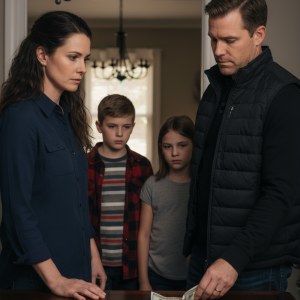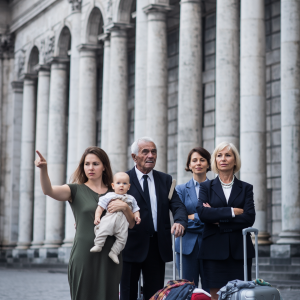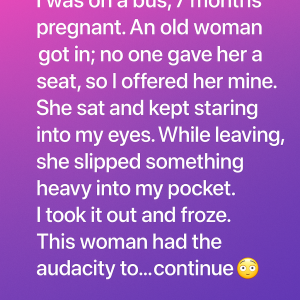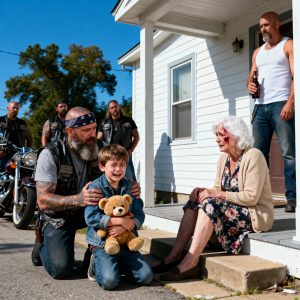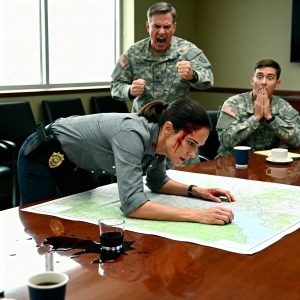Matvey parked at the gates of the old cemetery and let the engine fall silent. For years, he’d told himself he’d come. For years, he’d found reasons not to. When his mother was alive, there was always “no time.” After she passed, the excuses became easier — as if avoiding her grave meant avoiding the past.
But now there was nothing left to distract him. His once picture-perfect life — the wife, the friends, the business dinners — had collapsed in one brutal wave of betrayal. Natasha, now his ex-wife, had torn away the mask of their marriage, revealing not just her infidelity but the complicity of those around them. In a twisted way, he was almost grateful. At least now, the lies were gone.
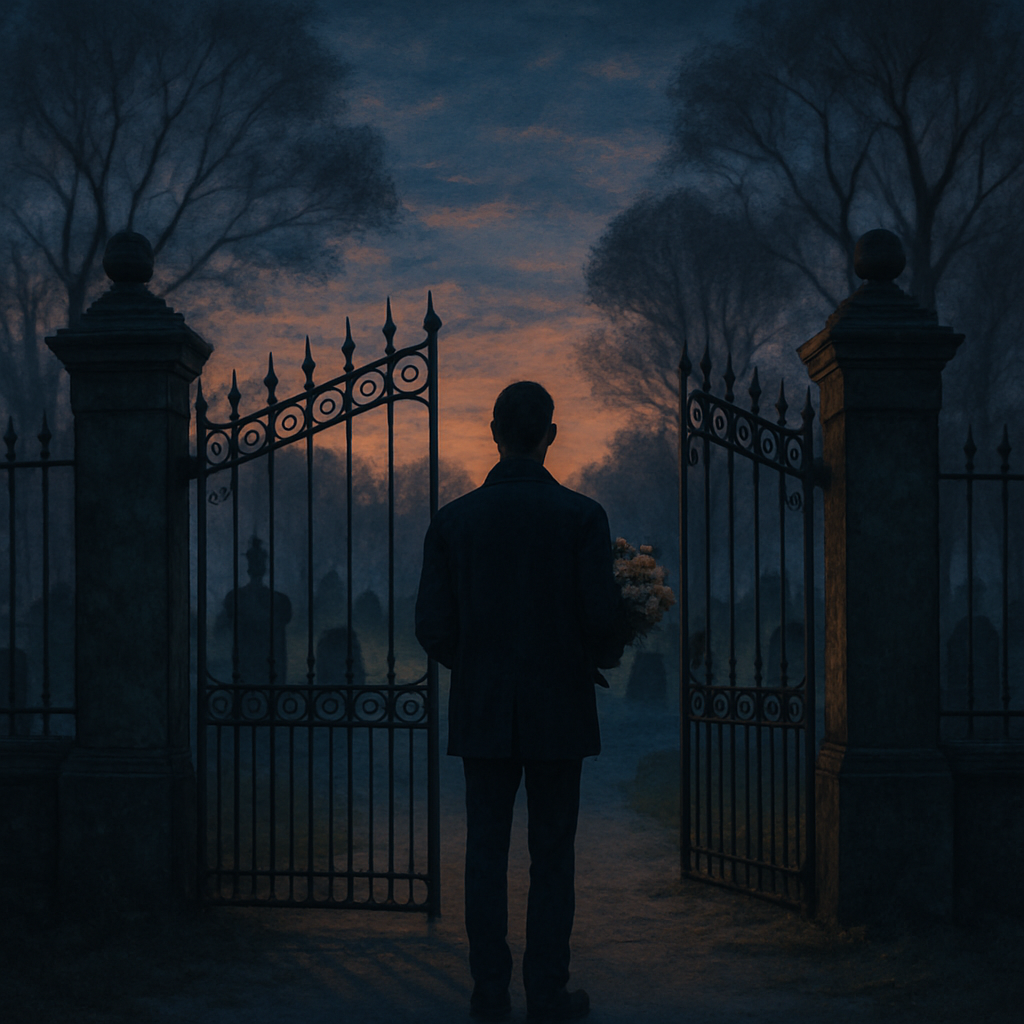
He’d married late, at thirty-three. Natasha was twenty-five, radiant, polished, the kind of woman people noticed in a room. He’d worn her like a badge of pride. But now, when he pictured her, all he could see was the contorted rage on her face the night she told him she’d hated every day of their marriage. Five years together, and not a single memory that warmed him.
He stepped from the car, flowers in hand, and walked the narrow, overgrown path toward his mother’s grave. He hadn’t even been there when the headstone was set — he’d arranged everything from afar, like so much of his life: distant, detached, unreal.
To his surprise, the plot was immaculate. The stone gleamed, the soil was turned, fresh flowers rested against the fence. Someone — not him — had been taking care of it.
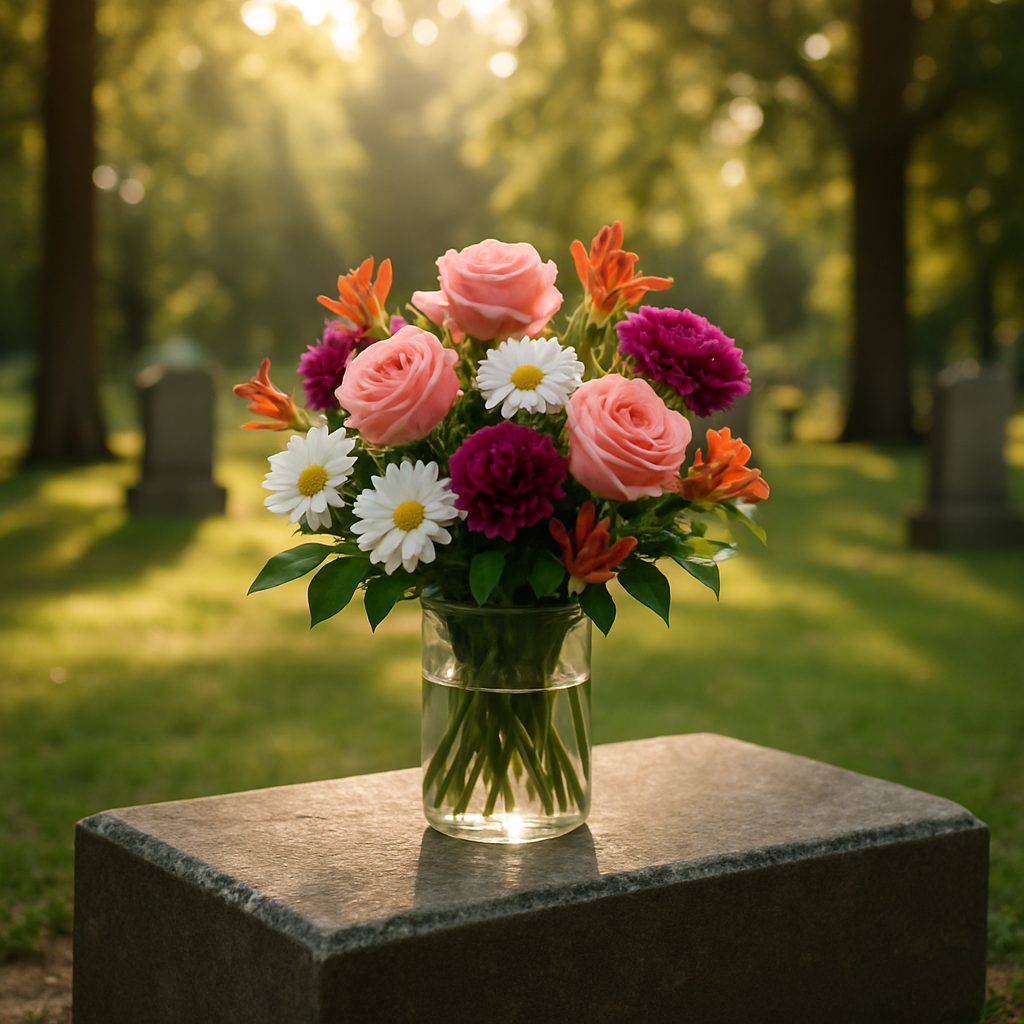
He opened the gate, set down the bouquet, and whispered, “Hi, Mom…” The words cracked in his throat. For years, he’d been a man in control — calculating, untouchable. Now, tears came freely, spilling hot down his face. It felt like she was there again, smoothing his hair, telling him the same thing she had when he scraped his knees as a boy: It’ll heal. No scar will stay.
She’d always said there was one thing you never get used to — betrayal. Only now did he truly understand.
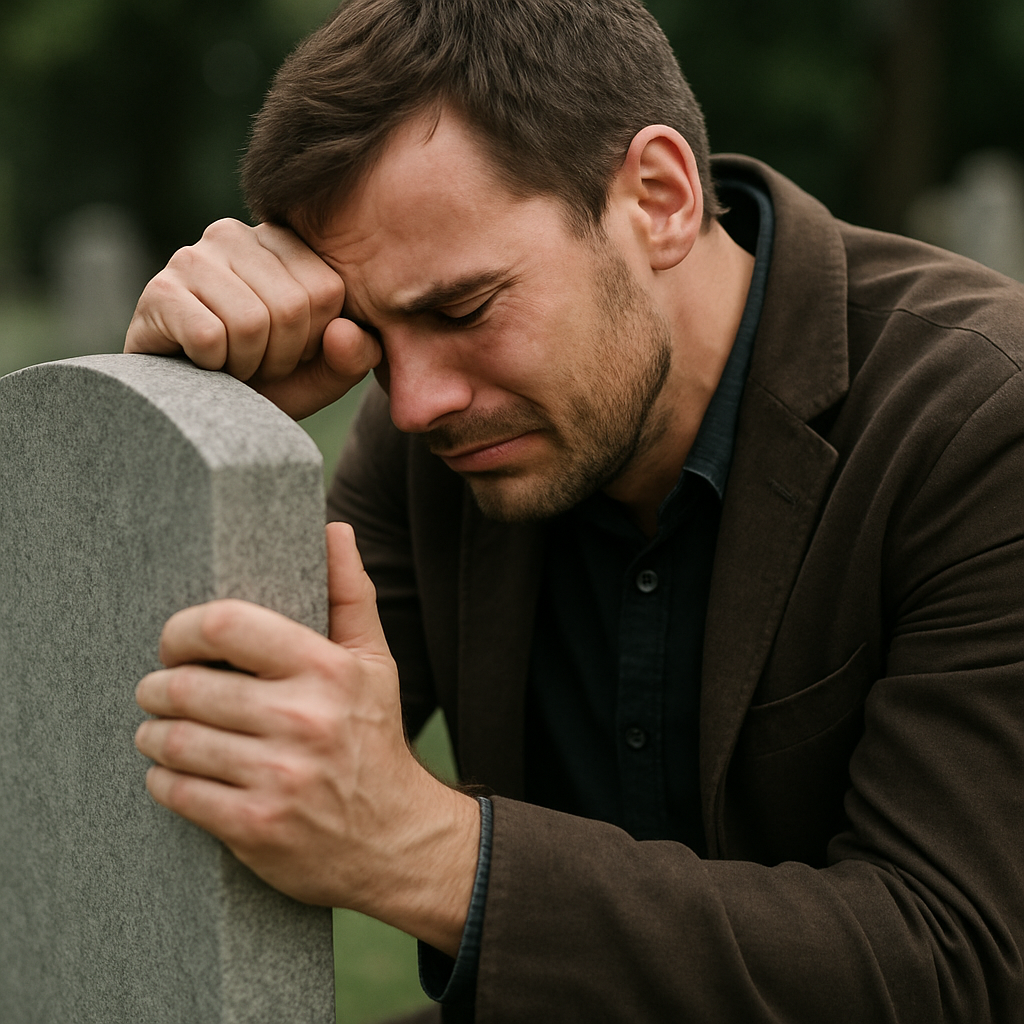
His thoughts were interrupted by a small voice.
“Mister, will you help me?”
He turned to see a little girl, maybe seven or eight, holding an empty bucket. She explained breathlessly that she needed to water flowers for her grandmother’s grave but couldn’t carry the bucket herself — and begged him not to tell her mother she’d gone alone.
Matvey smiled. “Lead the way.”
As they walked, she chattered about her school, her plans to graduate with honors, her mom’s recent illness. With every word, Matvey felt something lift inside him. He’d always wanted a family — a warm home, a wife who loved him, a child who ran to greet him at the door. Natasha had never wanted children. To her, motherhood meant “ruining your figure for a screaming lump.”
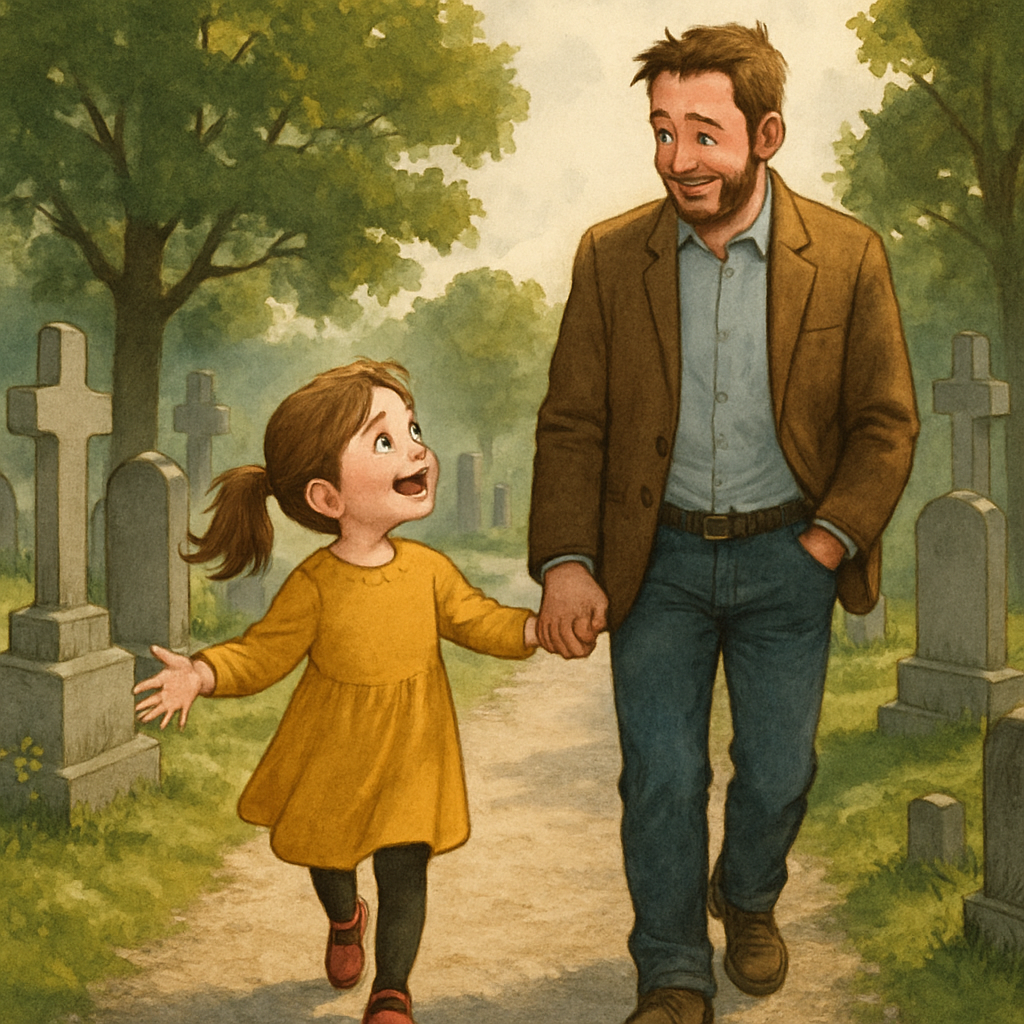
When they reached the grave, he froze. The photo on the headstone was of Nina — his former neighbor. And the little girl? Her granddaughter. Which meant… she was Nina’s daughter.
His mind raced. He hadn’t known Nina had come back. Or that she had a child. Or how old the girl — Masha — even was. The thought that she might be his made his chest tighten.
Masha hurried off, asking him again not to tell her mom they’d met. Matvey returned to his mother’s grave, but his mind was no longer on the flowers.
Later that day, he drove to his mother’s old house — the one he’d been paying someone to maintain. The yard was immaculate, flowers blooming in tidy rows. Inside, everything was clean, warm, lived in. Nina had clearly been caring for it herself.
When Masha spotted him in the yard, she ran to him, whispering with a grin, “Don’t tell Mom we met at the cemetery!” Then she called inside, “Mom, Uncle Matvey’s here!”
Nina appeared in the doorway, freezing at the sight of him. After an awkward greeting, she admitted she’d been looking after the house since her mother’s death. He thanked her, left her an envelope of cash “for the good work,” and was halfway out the door when Masha blurted out her wish for a bicycle.
That night, Matvey came down with a fever. Nina and Masha arrived with medicine and tea. As the girl busied herself in the kitchen, a thought struck him like a flash — one he couldn’t ignore.
“When was Masha born?” he asked quietly.
Nina froze. She sent Masha to the store before answering. “She has nothing to do with you, Matvey. We don’t need anything. Just forget it.”
But he couldn’t. The more she insisted, the clearer it became: Masha was his daughter. And he had already lost eight years.
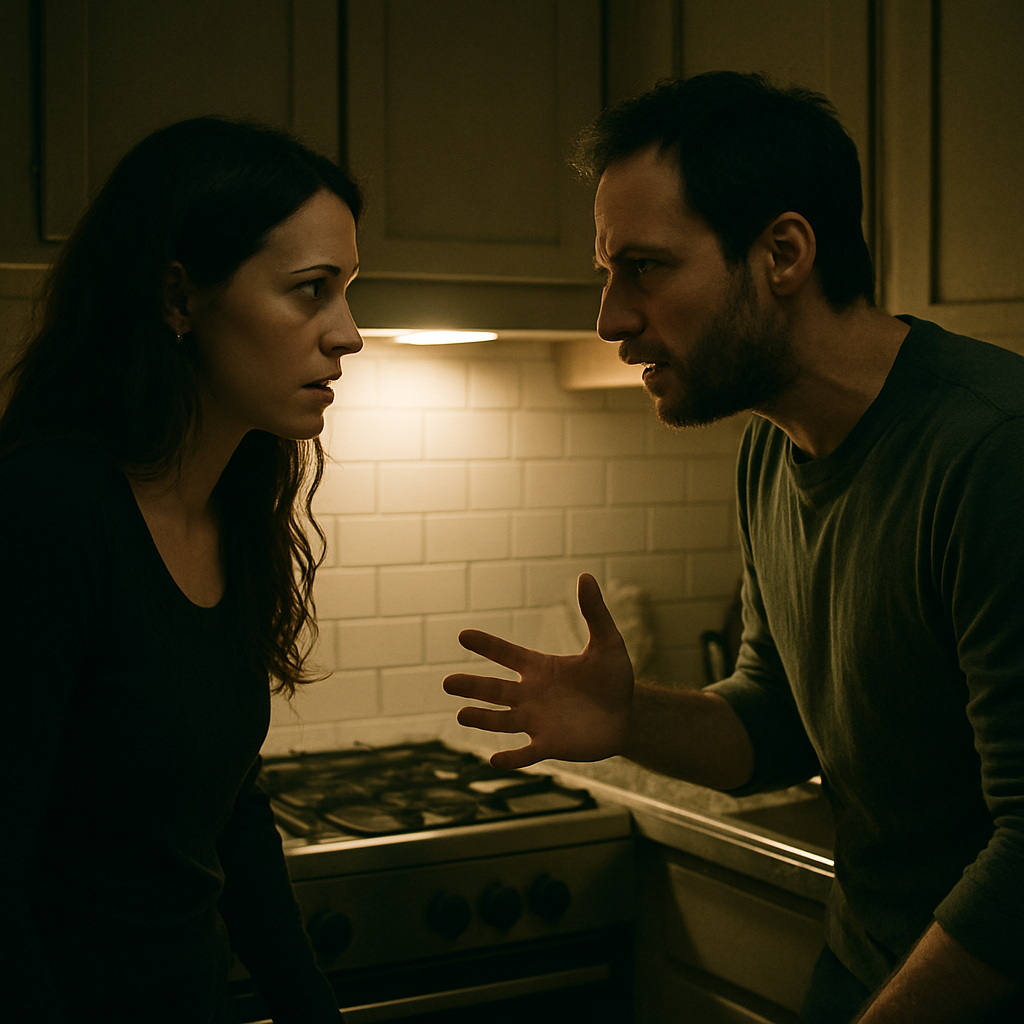
That night, he dreamed of his mother holding Masha, smiling, saying she’d always wanted a granddaughter like her.
When it was time to leave, he told Nina, “I’ll come back. I don’t know how, but I want a chance at a real family — with you, with her.” She didn’t promise anything, only whispered, “I don’t know…”
Three weeks later, he returned — not to his house, but to hers. With him were bags of gifts for both. Nina looked up from her sewing, eyes softening. Masha bounded out to greet him.
Nina took a breath. “Mashenka, I want you to meet your real dad.”
The bags fell from his hands. He pulled them both into his arms, certain of one thing: the life ahead would be real — no masks, no distance, no betrayals. Just them.

